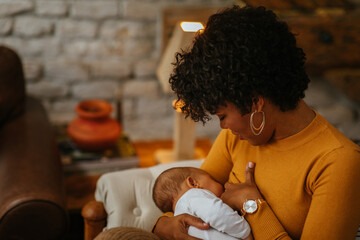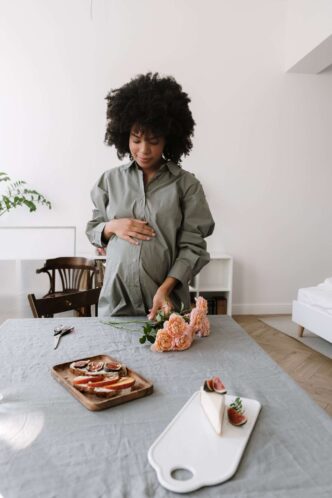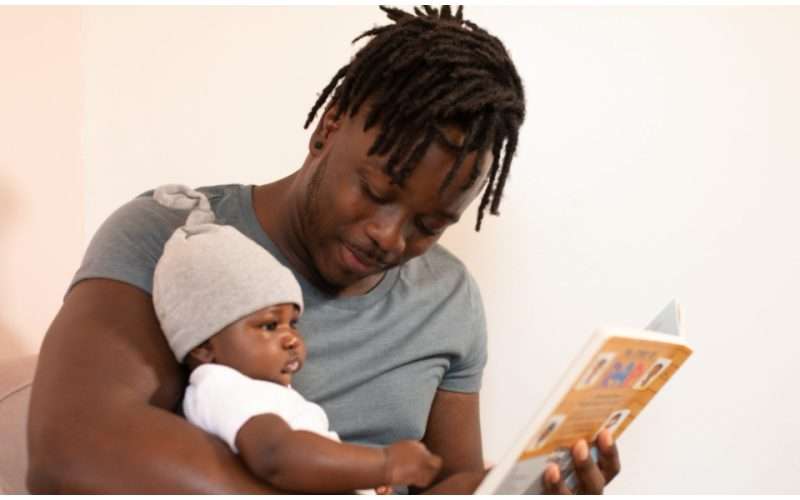A few weeks into her pregnancy, Dr. Alyssa Small Layne finally let herself feel joy.
She and her husband were about to become parents. Then everything collapsed.
At 22 weeks, her uterus ruptured. She lost her daughter.
Doctors performed an emergency hysterectomy. That meant she could never carry a child again.
The grief swallowed her. Shock. Sadness. Silence.
This moment changed how she viewed fertility care forever.
For Black women, infertility carries even more weight. Stigma. Bias. The pressure to stay quiet.
Maybe you’ve felt it too. That sting when every test says no. The quiet shame you don’t talk about. The frustration when doctors dismiss you, as if getting pregnant should be simple.
That loneliness is real.
Too often, society, and even medical spaces, tell Black women their bodies should “just work.”
Instead of care, they get judgment. Instead of support, they feel invisible.
This article pulls back the curtain. It names the challenges. The bias. The reality of infertility for Black women. And it offers a way forward. From finding egg donors who share your culture, to considering surrogacy.
From medical guidance to emotional support. You’ll hear from Dr. Layne, a board-certified OB-GYN who knows both sides: doctor and patient.
But first, let’s take a look at the struggle of infertility in Black communities.
Ⅰ. The Hidden Infertility Crisis Affecting Black Women
Black women face a quiet but urgent crisis in reproductive health: infertility. Studies show they’re nearly twice as likely to struggle with it compared to white women, yet they’re far less likely to seek fertility treatment.
And even when they do, IVF success rates for Black women remain lower. Why? Part of it is the stigma.
Deep-rooted myths such as that “Black women are naturally fertile” or that “infertility is only a white woman’s problem” still hang around.
Many women grow up hearing those ideas, so when pregnancy doesn’t happen, the shame can hit harder. And instead of seeking fertility care, many end up blaming themselves.
Dr. Layne says stereotypes of Black people as hypersexual and naturally fertile fuel medical bias, so even though they face infertility at twice the rate, they’re less likely to get fertility testing.
It’s not just bias from doctors. Representation matter. Walk into many fertility clinics, and the ads and brochures rarely feature Black families.
The message between the lines is clear: this space isn’t built with you in mind. And the weight of all this? It’s heavy.
Many Black women describe infertility as one of the loneliest journeys of their lives. Each failed cycle or negative test feels like another blow.
Add the infertility stigma in Black communities, and even opening up to loved ones can feel impossible.
The silence can be crushing.
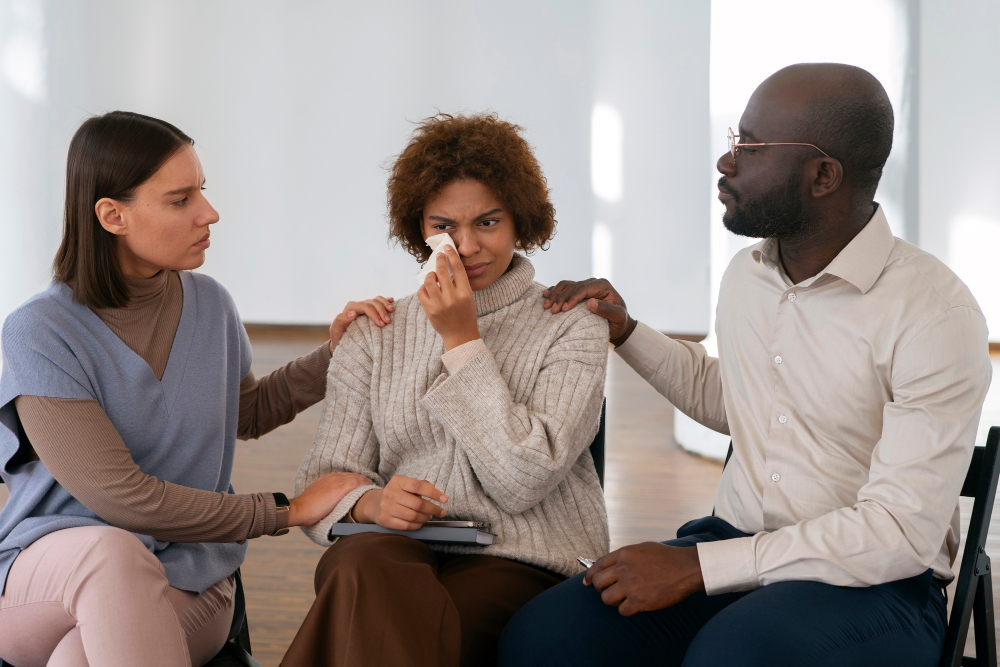
Ⅱ. From Patient to Advocate: One Doctor’s Fertility Journey
Dr. Layne’s story makes these statistics painfully real. At 22 weeks, she faced a uterine rupture that ended in an emergency hysterectomy.
“Almost instantly, I lost so much — our daughter, my uterus, and my fertility.”
Dr. Layne
Grief consumed her. She leaned on therapy, faith, and mindfulness to find her footing again.
“No one I knew had ever been through something remotely similar, and certainly not as a full time practicing OBGYN, so I felt very isolated,” she shares.
What shook her most was realizing how hard it was to find culturally competent fertility clinics, even as a doctor with resources and connections. Her dual role as patient and doctor gave her a rare perspective.
Infertility isn’t only a medical problem. It’s shaped by stigma, financial strain, and the lack of representation in fertility spaces.
Ⅲ. Why Current Fertility Care Systems Fail Black Women
Fertility care is expensive. IVF and related treatments are often not covered by insurance, leaving many couples to face steep out-of-pocket costs. This financial strain hits Black women especially hard, creating major fertility care barriers.
Then there’s mistrust. The history of reproductive health abuses, from forced sterilizations to medical experiments like Tuskegee, hasn’t been forgotten. Even well-meaning doctors sometimes carry the weight of that legacy when Black patients walk through their doors.
Representation inside fertility clinics matters, too.
Dr. Layne points out: “Images in advertisements, on websites and in medical spaces may not reflect Black people. This can lead Black couples to feel out of place and reinforce beliefs that they don’t belong.”
The fallout? Many women delay fertility care. Opportunities for early diagnosis or intervention slip by.
In her own practice, Dr. Layne often sees women in their early 40s seeking surgery for fibroids or endometriosis to improve fertility, much later than ideal. “Diagnosis and early intervention are important,” she emphasizes.
Ⅳ. The Black Egg Donor Shortage: A Critical Fertility Care Gap
Here’s another layer of the problem: the Black egg donors shortage.
Less than 5% of donors are Black. And this isn’t just about numbers.
For many families, racial and ethnic matching matters for cultural identity, genetics, and resemblance.
Without diversity, Black couples are left with longer wait times, fewer options, and often higher costs.
Dr. Layne points out that many Black couples never even hear about egg donation as a possibility. “Doctors might assume they can’t afford it or aren’t interested,” she says.
But the real problem runs deeper; there simply aren’t enough Black egg donors available. And the few who do donate? They often wait months or even years to find a match.
“A company wouldn’t expect a white couple to just choose from only six white egg donors… Black parents are looking for the same choice and compatibility.”
Dr. Layne
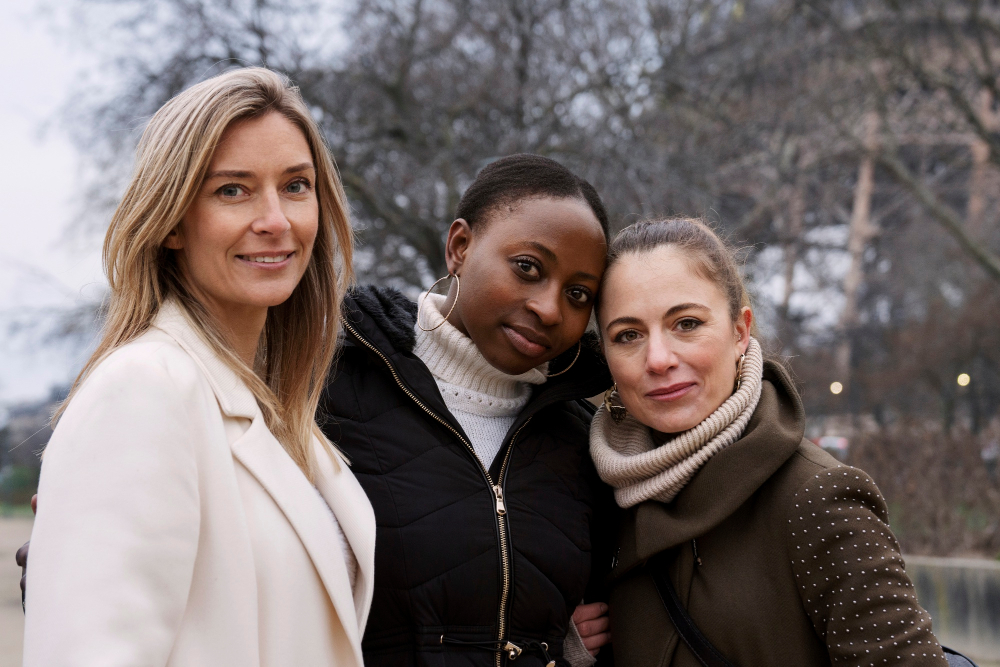
This isn’t just a supply issue, but it’s about equity. The lack of egg donor diversity sends a clear message about whose needs matter in reproductive healthcare.
Ⅴ. Breaking Fertility Treatment Barriers: Actionable Solutions
Change won’t come from one place; it has to happen across the board.
For Black women navigating infertility:
- Seek out culturally competent fertility clinics
- Start open conversations within your family and community. Breaking the silence eases the burden.
- Find online spaces built for infertility advocacy for Black women, such as The Broken Brown Egg
For fertility clinics and donor banks:
- Launch recruitment campaigns in diverse communities.
- Partner with HBCUs and Black professional networks to increase awareness and encourage donation.
For policymakers and advocates:
- Push for insurance mandates that cover fertility treatments
- Fund campaigns that highlight egg donor diversity and equitable care.
“Infertility is a disease. How can it be properly treated if it isn’t diagnosed and all management options aren’t discussed because of what someone thinks you can or cannot afford?”
Dr. Layne
Breaking stigma and tackling fertility treatment disparities go hand in hand.
When families see themselves represented, fertility care stops feeling like an uphill battle and starts feeling like possibility.
Ⅵ. Finding Hope in Your Fertility Care Journey
Dr. Layne has turned her personal loss into a public mission.
“You’re not alone. At least 1 in 7 couples face infertility, although many have done so in silence,” she says.
Sharing these stories builds connection, showing that struggle and hope can exist side by side.
Her work with JUNIE and the BloomBridge app helps families understand surrogacy from start to finish, providing tools to move through the process with confidence.

“Our surrogacy app allows parents and surrogates to complete their surrogacy journey with clarity, confidence, and a beautiful origin story they are proud to share,” she says.
Her message is powerful: infertility doesn’t define womanhood.
Silence only deepens pain.
Black women can see themselves reflected in fertility care and reshape the future of Black women reproductive health by demanding representation and pushing for equity in donor banks,
Ⅶ. Finding Strength Through Better Fertility Care: A Reflection
It’s okay to feel frustrated, exhausted, or even defeated. Maybe you’ve asked yourself in the dark, “Why me? Why does it seem so easy for everyone else?”
Those questions are human. And you deserve to have them acknowledged.
But here’s what matters: you are not alone in this. Every setback, every long wait, every confusing doctor’s visit, every pang of self-doubt—others have walked that road too. And many have found their way through quality fertility care.
Infertility is not your failure. It’s a mix of medical barriers and social pressures, challenges you can face with the right tools, knowledge, and support.
The fact that you’re here, seeking answers, shows strength already.
Think of what you’ve gained from this article. You’ve seen the emotional weight infertility carries. You’ve learned about the unique struggles Black women face. You’ve discovered how to find culturally aligned egg donors.
And you’ve explored paths like surrogacy with more confidence. That’s power: knowledge turning into hope.
Quoting Brene Brown, Dr. Layne puts it best: “One day, you’ll tell your story of how you overcame what you went through, and it will be someone else’s survival guide.”
You are stronger than silence. Bigger than the statistics. And more deserving of compassionate fertility care than you’ve ever been told. So pause, take a deep breath, and feel the weight shift just a little.
You are equipped. You are informed. And you are ready to move forward with the fertility care you deserve.
Your journey is real, your courage undeniable, and your hope alive. Stand tall.
This is your story, and one day it will light the way for someone else seeking better fertility care.
Learn more: How to Handle the Psychological Toll of Infertility in Diaspora



